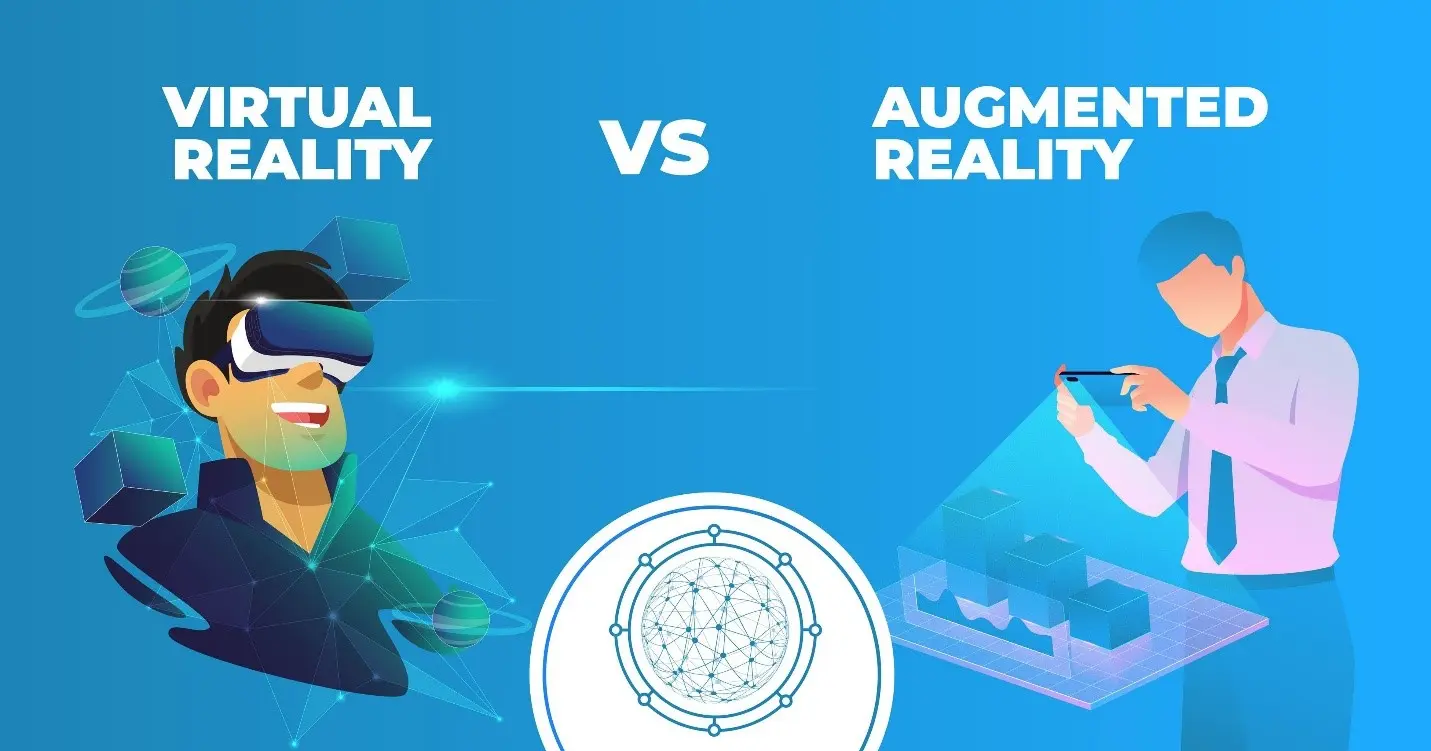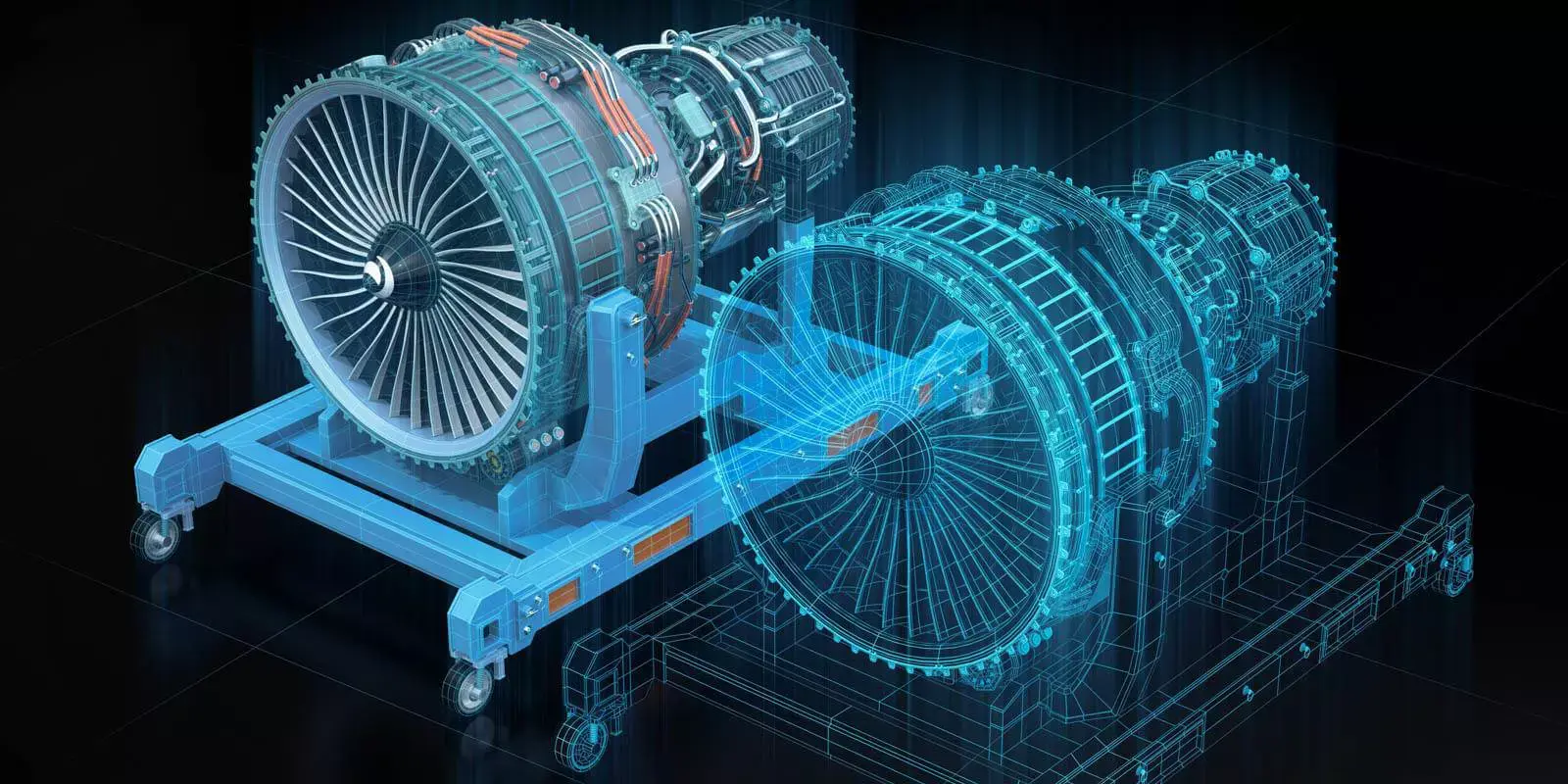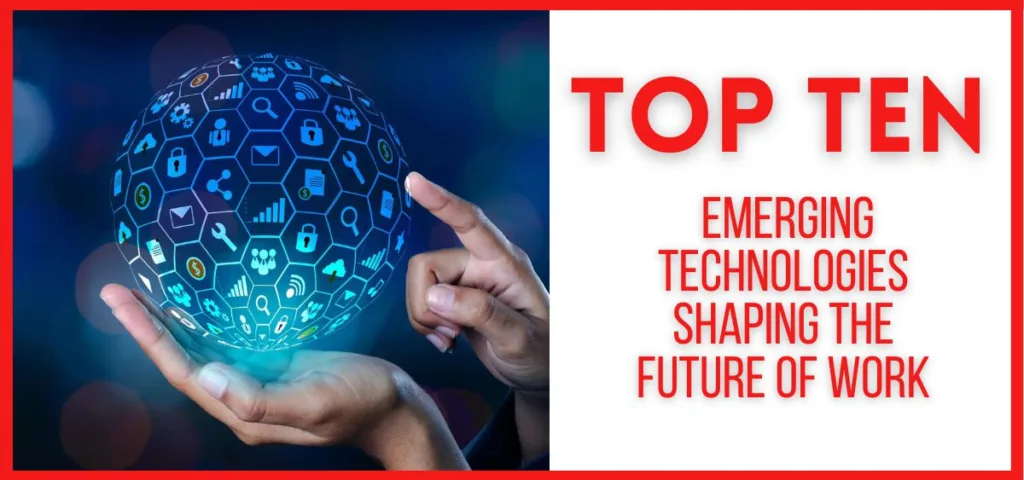Emerging technologies are innovations that have recently entered the market or are still in development. They can have a substantial impact on both the economy and society. Emerging technology can help firms streamline operations, eliminate errors, and do more with fewer resources. They can also automate processes, boost profits, and improve product quality.
A strong convergence of disruptive factors will transform the commercial landscape of 2024 as the year draws to a close. The creative potential and problem-solving skills of generative AI will reveal untapped efficiency. Sustainability will become a strategic requirement rather than just a slogan, especially when it comes to developing AI models. Furthermore, the once-science fantasy concept of quantum computing will unleash hitherto unthinkable possibilities. Leading IT company executives are interviewed by Technology Magazine to learn more about the key themes to watch in 2024.
Also, read: Top Ten Reasons to Join Stevens Applied Artificial Intelligence Course
Tech Titans: Top 10 Emerging Technologies Shaping the Future of Work in 2024
The year 2024 is witnessing a surge of groundbreaking technologies that are rapidly transforming the landscape of work. From the creative spark of generative AI to the analytical power of big data, these innovations are poised to reshape how we work, what skills are valued, and the very structure of our workplaces. In this exploration, we’ll delve into the top 10 emerging technologies that are redefining the future of work, equipping you with the knowledge to navigate this exciting and ever-evolving landscape.
1. Generative AI
Generative AI, a branch of artificial intelligence, is revolutionizing how we create content. By analyzing massive datasets of text, code, or images, generative models can produce entirely new and original content, from realistic marketing copy and creative product designs to lines of code and even musical pieces. This technology has the potential to streamline workflows, boost creative exploration, and democratize content creation. Imagine designers using generative AI to brainstorm logo ideas or marketers generating personalized ad copy that resonates with specific audiences.

Generative AI can also automate repetitive tasks like writing product descriptions or generating reports, freeing up human workers for more strategic endeavors. While ethical considerations around bias and ownership remain, generative AI is poised to be a game-changer across various industries, transforming the way we approach and experience content creation.
Also, read: Top 10 AI Myths You Should Know
2. Robotic Process Automation (RPA)
Robotic Process Automation (RPA) is transforming the way businesses operate by automating repetitive, rule-based tasks. Imagine software robots mimicking human actions, like logging into applications, copying and pasting data, or sending emails. This frees up employees from mundane activities, allowing them to focus on higher-value work that requires creativity, problem-solving, and human interaction.

RPA integrates seamlessly with existing systems, improving accuracy and efficiency. Implementation is relatively fast and cost-effective, making it accessible to businesses of all sizes. As RPA evolves, it can handle more complex tasks and integrate with artificial intelligence (AI) for enhanced decision-making, further amplifying its impact on the future of work.
3. Internet of Things (IoT)
The Internet of Things (IoT) is revolutionizing industries by creating a network of physical devices embedded with sensors and software. These “smart objects,” ranging from thermostats to complex machinery, collect and exchange data, enabling remote monitoring, automation, and data-driven decision-making. In manufacturing, IoT sensors track production lines, optimizing efficiency and predicting maintenance needs.

Supply chains leverage IoT for real-time location tracking of goods, streamlining logistics. Healthcare benefits from wearable devices that monitor patient vitals remotely, allowing for preventative care and improved treatment plans. Even buildings are becoming “smart” with IoT-enabled systems that regulate energy consumption and enhance occupant comfort. As the number of interconnected devices explodes, the potential applications of IoT are vast, promising to transform how we work and live.
Also, read: Top 10 Robotic Applications: Exploring the Ten Best Implementations of Soft Robotics
4. Cloud Computing
Cloud computing is transforming how businesses access and manage IT resources. Instead of relying on physical servers and software, businesses can now rent storage, computing power, and applications over the Internet. This pay-as-you-go model offers significant cost savings and scalability, allowing companies to easily adjust their resources up or down as needed. Cloud computing also fosters remote work by providing employees with secure access to data and applications from any device with an internet connection.

This flexibility empowers a more geographically distributed workforce and fosters collaboration across teams. Furthermore, cloud providers handle server maintenance and upgrades, freeing up IT staff to focus on strategic initiatives. As businesses navigate the evolving work landscape, cloud computing offers a secure and adaptable foundation for success.
5. Big Data
Big data refers to the massive, complex datasets businesses generate today. This information, encompassing structured sales figures and unstructured social media posts, holds immense potential. Businesses can glean valuable customer insights by harnessing big data’s power through analytics. Imagine uncovering hidden trends in purchasing habits or pinpointing target markets with laser precision.

Big data empowers businesses to optimize operations, too. By analyzing production line sensor data, for example, companies can predict equipment failures and prevent costly downtime. The vast amount of data can also be used to develop innovative products and services, tailored to ever-evolving customer needs. Big data is a game-changer, and as data continues to grow exponentially, businesses that can effectively analyze and leverage it will be the ones shaping the future of work.
Also, read: Top Ten Deep Learning Techniques for Cutting-Edge AI Applications
6. Cybersecurity
While technologies like generative AI and robotic automation steal the spotlight, cybersecurity acts as the silent guardian in the future of work. As businesses become increasingly dependent on interconnected devices and vast troves of data, cybersecurity safeguards these resources from cyberattacks. These attacks can range from malware infiltration stealing sensitive information to large-scale ransomware crippling operations.

By implementing robust cybersecurity measures, businesses can ensure their data’s confidentiality, integrity, and availability. This includes educating employees on safe practices, utilizing firewalls and encryption software, and constantly monitoring systems for vulnerabilities. Investing in cybersecurity is not just a cost but a strategic necessity to ensure business continuity, maintain customer trust, and navigate the ever-evolving threat landscape of the digital age.
7. Artificial Intelligence (AI)
Artificial intelligence (AI) is rapidly transforming the workplace, impacting everything from automating routine tasks to powering complex decision-making. AI encompasses a range of technologies, including machine learning, natural language processing, and computer vision. Machine learning algorithms can analyze vast amounts of data to identify patterns and make predictions, enabling AI to automate tasks currently performed by humans. Natural language processing allows AI to understand and respond to human communication, paving the way for intelligent virtual assistants and chatbots that can handle customer service inquiries or schedule meetings.

Computer vision equips AI with the ability to perceive and interpret visual information, making it ideal for tasks like image and video analysis or robotic control in manufacturing. As AI continues to evolve, it will reshape workforces by automating repetitive tasks, freeing up human employees to focus on higher-level cognitive functions like creativity, strategic thinking, and problem-solving. However, the rise of AI also presents challenges, such as the potential for job displacement and the need for ethical considerations in developing and deploying AI systems. Overall, AI is poised to be a major driver of change in the future of work, demanding both innovation and adaptation from businesses and workers alike.
Also, read: Exploring the Top Ten Deep Learning Frameworks: A Comprehensive Guide
8. Virtual Reality (VR) and Augmented Reality (AR)
Virtual reality (VR) and augmented reality (AR) are transforming how we work by creating immersive experiences. VR plunges users into entirely simulated environments, perfect for training simulations or remote collaboration in 3D spaces. Imagine practicing surgery in a virtual OR or designing a new product with colleagues across the globe in a shared virtual workspace. AR, on the other hand, overlays digital information into the real world. A technician fixing a complex machine can view step-by-step instructions overlaid on the equipment, or an architect can see their design come to life at a construction site.

VR excels in isolated, immersive experiences, while AR bridges the physical and digital worlds, providing real-time information and enhancing physical tasks. Both VR and AR have the potential to revolutionize training, remote work, design, and communication, making them key technologies shaping the future of work.
9. Blockchain
Blockchain, a decentralized ledger technology, is fundamentally changing how we record and track data in the workplace. Imagine a shared, secure digital record of transactions, accessible to all authorized participants, where each entry is chronologically linked and tamper-proof. This is the essence of blockchain. This technology can streamline complex workflows, boost transparency in supply chains, and secure sensitive information.

For example, blockchain can verify employee qualifications, track project milestones with immutability, or ensure secure and efficient cross-border payments. By eliminating the need for intermediaries and fostering trust through cryptographic verification, blockchain has the potential to transform numerous industries, making work processes more efficient, secure, and collaborative.
Also, read: Top Ten Augmented Reality App Development Companies for 2023
10. Digital Twins
Digital twins are revolutionizing how we interact with physical objects. Imagine a virtual model of a factory machine, constantly updated with real-time sensor data on temperature, performance, and vibrations. This is the essence of a digital twin. By mirroring a physical asset in the digital world, companies can monitor its health, predict maintenance needs before breakdowns occur, and even optimize operational processes.

Digital twins are finding uses across industries, from aerospace for optimizing engine performance to healthcare for simulating surgeries. This technology holds immense potential to improve efficiency, reduce costs, and usher in a new era of predictive maintenance across the workforce.
FAQs about Emerging Technologies
Q. What are the biggest trends shaping the future of work?
The future of work will be characterized by automation, the rise of new technologies like AI and AR/VR, and an increased focus on skills like creativity, critical thinking, and problem-solving.
Also, read: Top 10 Tips and Tricks to Master Google Cloud TensorFlow
Q. Will these technologies take away my job?
While some jobs will be automated, many new jobs will be created in fields like AI development, data analysis, and cybersecurity. The key is to be adaptable and willing to learn new skills.
Q. What skills will be important in the future of work?
The most important skills in the future of work will be those that machines cannot easily replicate, such as creativity, critical thinking, problem-solving, communication, and collaboration.
Q. What is generative AI, and how will it impact my work?
Generative AI can automate tasks like content creation, design, and coding. This could free you up to focus on more strategic work, but it may also require you to develop new skills to work alongside AI.
Q. What is robotic process automation (RPA) and how will it affect my job?
RPA can automate repetitive tasks like data entry and customer service. If your job involves a lot of these tasks, you may need to develop new skills to stay relevant.
Q. How will the Internet of Things (IoT) change the way I work?
The IoT will connect more and more devices to the internet, which will create new opportunities for data collection and analysis. This could lead to new jobs in areas like data science and IoT security.
Also, read: Top 10 most popular programming languages
Q. What are the benefits of cloud computing for businesses and employees?
Cloud computing allows businesses to access resources on demand, which can save money and make them more agile. It can also give employees more flexibility in where and how they work.
Q. How can I prepare for the future of work?
The best way to prepare for the future of work is to stay up-to-date on emerging technologies and develop new skills. There are many online and in-person resources available to help you with this.
Q. What resources are available to help me learn about these technologies?
There are many online courses, boot camps, and certificate programs available to help you learn about emerging technologies. You can also find information from industry organizations and publications.
Conclusion: The Final Words
As we conclude our exploration of the Top 10 Emerging Technologies Shaping the Future of Work in 2024, it’s clear that the workplace is undergoing a profound transformation. Emerging technologies like AI, automation, and blockchain are not just disrupting traditional industries; they’re creating entirely new ones. The ability to adapt to these changes will be crucial for individuals and organizations alike.
From the rise of AI-powered decision-making to the integration of blockchain into supply chains, emerging technologies are reshaping the way we work. While there are concerns about job displacement, there’s also immense potential for new opportunities and increased productivity. It’s essential to approach these changes with a mindset of innovation and collaboration.
As we look ahead, it’s clear that the future of work will be defined by emerging technologies. Those who embrace these advancements and leverage their potential will be well-positioned to thrive in the years to come.
Also, read: Top 10 Quantitative Trading Strategies That Work in 2024


































